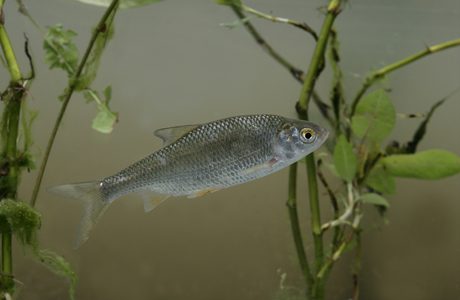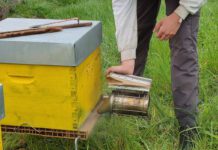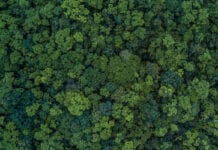
Fish in Britain’s rivers are under threat from warmer waters. Cold-water species such as Atlantic salmon and brown trout are struggling to cope as climate change brings significant increases in temperature, says campaign group Keep Rivers Cool.
On 28 June there was a call for urgent action from the group, to plant broadleaf native trees alongside river banks, creating dappled shading and stopping water from warming up.
Shade can reduce temperatures in small rivers by on average 2-3C compared to un-shaded streams; and by more on hot summer days.
Speaking on behalf of the KRC partnership, Diane Millis, from the Woodland Trust said: “We’re asking people who value our rivers to survey their local river bank, and look at specific areas which may need shade. Landowners, rivers trusts, anglers, farmers and ecological groups can all help.”
The KRC partnership is asking groups working in catchment areas to take up the challenge using a practical guide for planting along river margins, available on the Woodland Trust website. The manual gives step by step instructions for planting, species selection and location, ensuring the right balance of shade for fragile river ecosystems.
The Keeping Rivers Cool partnership can provide landowners and groups working in catchment areas with first hand specialist advice; and the Woodland Trust can also offer generously subsidised trees. Shade maps showing locations along English rivers which are at risk from direct sun and may need more riparian shade can be accessed here via The River’s Trust.
Hot water
Brown trout start to die when water temperature hits between 22C–25C for more than 7 consecutive days. In hot summers, a small number of sites in the New Forest, have recorded maximum water temperatures over 31C – warmer than many heated swimming pools.
Some climate predictions indicate water temperatures will exceed the safe thresholds for river fish. And trees alongside riverbanks are a crucial part of the biodiversity of our waterways.
The Trust’s Diane Millis warned: “Figures show that stocks are already decreasing and if we don’t start taking the temperature threat seriously, iconic fish like salmon will face even more serious decline. Rivers, and the ecosystems they support, are one of our most valuable natural resources.“
Salmon are already under pressure, from sediment and pollution run-off, barriers to swimming up-river, lower flows and changes in habitat. The annual fisheries report from the Environment Agency show a continued decline in salmon populations, with over 90% of stocks in England’s principal salmon rivers assessed as being at risk, or probably at risk. At sea, marine survival of salmon has nearly halved over the last 20 years; making it more important that their freshwater habitat is improved, and protected.
Already Keeping Rivers Cool schemes are underway in Northumberland, Hampshire, the South east and the North West of England.
It’s not only shade that’s important; woody debris which drops into streams creates cooler patches under the water, which protect fish, invertebrates and plants.
Trees planted alongside rivers also bring other benefits to the natural environment, they help stabilise banks, reduce and slow the flow of flood waters downstream, and improve water quality by filtering agricultural run-off from nearby land. Currently only 17 % of English rivers meet good ecological water quality standards.







